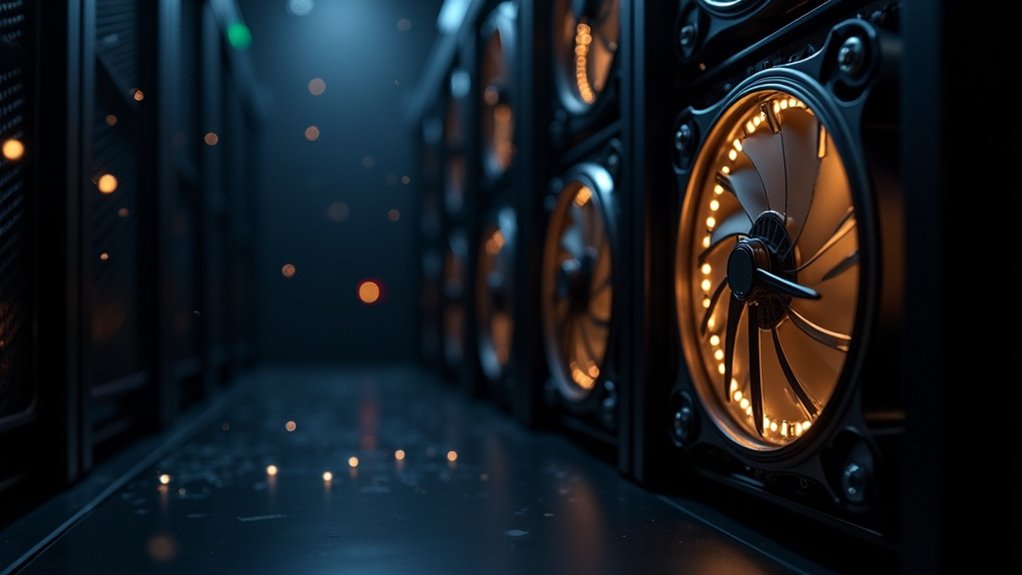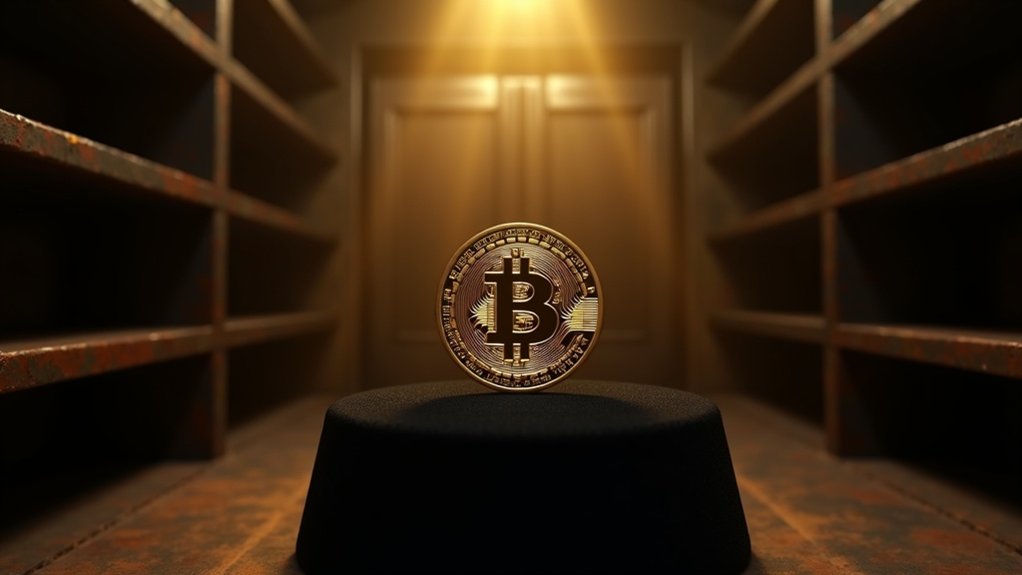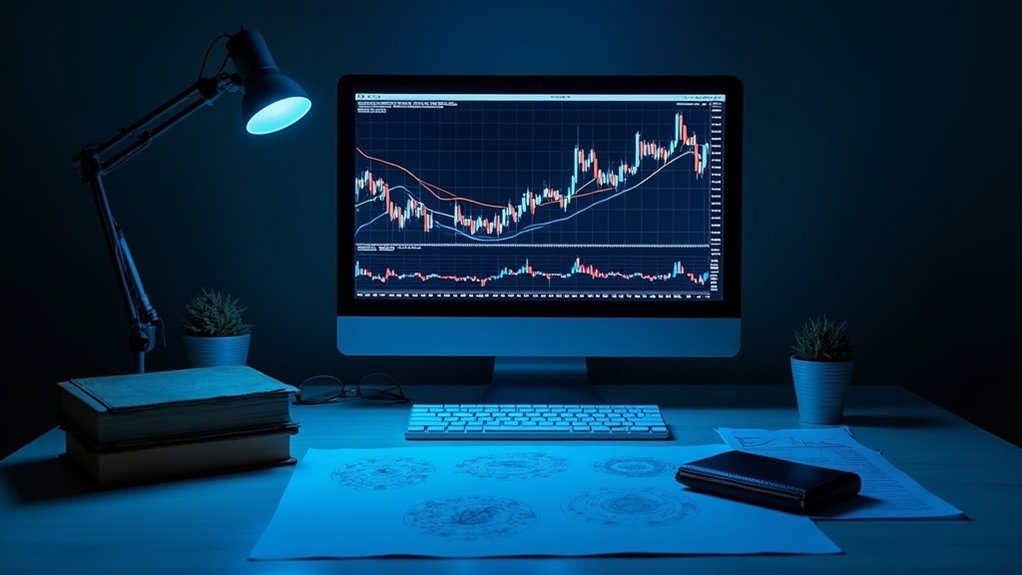Mining one Bitcoin takes vastly different amounts of time depending on hardware and luck. With top-tier ASIC miners like the Antminer S21 Pro, it could take months or years. Most miners never achieve a full coin alone—they join pools instead. The insanely high network difficulty (52.39 trillion hashes per block) makes solo mining nearly impossible. And with each halving, rewards shrink further. There’s a reason most people just buy Bitcoin instead.
How long does it actually take to mine a single Bitcoin? Well, that’s a loaded question. The answer isn’t straightforward—it depends on multiple factors that most people don’t consider.
Bitcoin’s network is designed to produce a new block approximately every 10 minutes. Each block currently rewards miners with 6.25 Bitcoin. Technically, if you managed to mine an entire block solo, you’d get 6.25 Bitcoin in just 10 minutes. But good luck with that. Miners must solve complex mathematical puzzles to validate each new block on the blockchain.
The network’s difficulty adjustment mechanism guarantees this 10-minute average remains constant. Every 2,016 blocks (roughly two weeks), the system recalibrates based on how long it took to mine the previous batch. Too fast? Difficulty increases. Too slow? It decreases. Simple as that.
Your hardware makes a massive difference. Modern ASIC miners like the Antminer S21 Pro are exponentially more efficient than older models. Mining with outdated equipment? You might as well try catching raindrops in a bucket during a drought.
Most individual miners never see a whole Bitcoin these days. The network’s total hash rate is astronomical. Your puny contribution? A drop in the digital ocean. That’s why mining pools exist—they combine hash power from multiple miners and split rewards proportionally.
In a pool, your earnings depend on your contribution percentage. With high-end hardware and cheap electricity, you might mine a full Bitcoin in months. With average setups? Years. And that’s assuming difficulty doesn’t keep rising, which it almost certainly will.
Network hash rate continues climbing as more miners join, making individual mining increasingly difficult. The difficulty has recently increased by about 2.51% over 30 days and 6.39% over 90 days. To put this in perspective, miners now need to perform approximately 52.39 trillion hashes to mine a single block.
As of 2025, the block reward has decreased to 3.125 BTC due to the most recent halving event, further extending the time needed to mine a complete Bitcoin. The system is designed to distribute all 21 million Bitcoin by 2140. Mining will get progressively harder until then. Want a full Bitcoin quickly? You could always just buy one. Probably easier than mining at this point.
Frequently Asked Questions
What Equipment Do I Need to Start Mining Bitcoin?
Bitcoin mining requires serious hardware. ASIC miners are essential—forget GPUs or CPUs.
You’ll need models like Bitmain Antminer S21 or MicroBT Whatsminer M66S, which cost thousands. Don’t forget robust power supplies, cooling systems (these things run hot), and stable internet. A Bitcoin wallet stores your rewards.
Mining isn’t for the faint-hearted or light-walleted. The equipment’s expensive, power-hungry, and loud. Not exactly apartment-friendly stuff.
Is Bitcoin Mining Still Profitable in 2023?
Bitcoin mining profitability in 2023 remains viable – but only for certain players.
With production costs hitting around $37,856 post-halving and daily industry earnings of $27.7 million, the math works for some. Not everyone’s invited to this party, though.
Large operations with efficient equipment and cheap electricity are making money. Small miners? They’re basically toast.
The 104% hashrate growth created a brutal competitive landscape where only the fittest survive. Economics 101 in action.
How Much Electricity Does Bitcoin Mining Consume?
Bitcoin mining gobbles up a staggering amount of electricity.
Annual consumption estimates range between 80-170 terawatt-hours—comparable to entire countries like Finland or Argentina.
That’s about 0.5% of global electricity use.
One transaction? Up to 1,200 kWh, equivalent to 100,000 Visa transactions.
Pretty excessive.
While over 50% supposedly comes from renewables, the carbon footprint remains massive: 65-96 million metric tons of CO2 annually.
Mining’s energy appetite grows with Bitcoin’s value.
Efficient? Not exactly.
Can I Mine Bitcoin on My Home Computer?
Technically, yes. Realistically, no way. Home computers simply can’t compete with specialized ASIC mining hardware these days.
The Bitcoin network difficulty is astronomical now. A regular PC would take years—possibly decades—to mine a single Bitcoin, all while burning through electricity costs that far exceed any potential earnings. It’s like bringing a plastic spoon to a construction site.
Mining pools don’t help much either; your contribution would be microscopic. Those days are long gone.
What Happens to Bitcoin Mining After All Coins Are Mined?
After all 21 million bitcoins are mined (around 2140), mining doesn’t stop.
Miners will still validate transactions—they just won’t get new coins as rewards. Their income? Transaction fees only.
The network keeps running exactly the same way technically. Miners still compete to confirm blocks, and the blockchain marches on.
No new bitcoins, but plenty of work to do.
Some worry about security if fees aren’t enough to keep miners interested. Time will tell.









